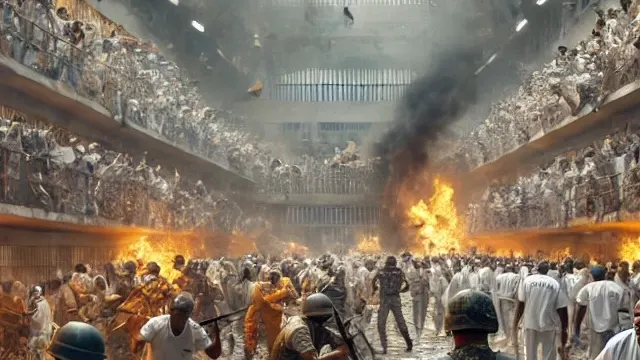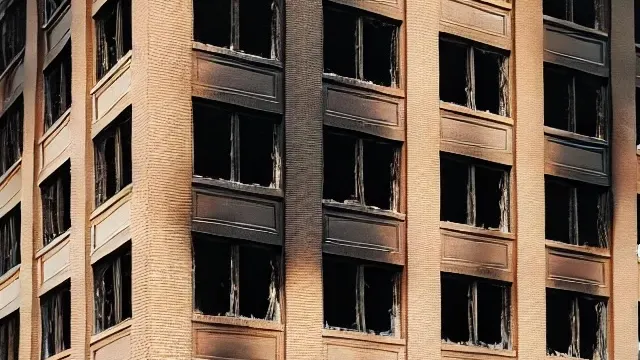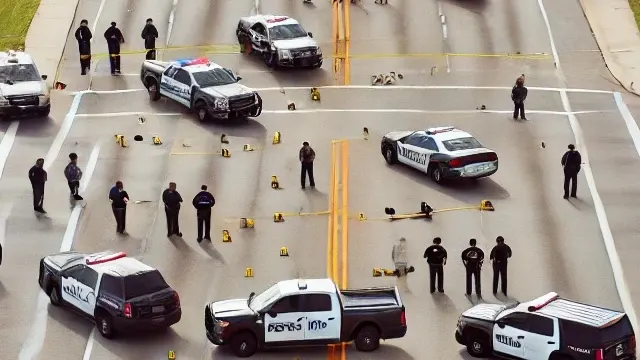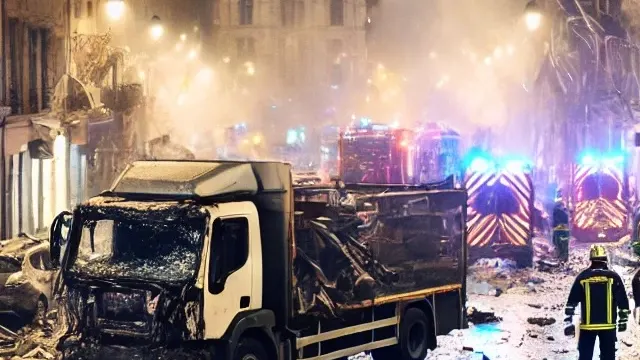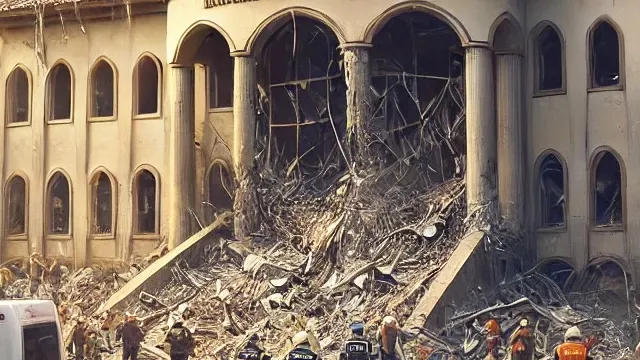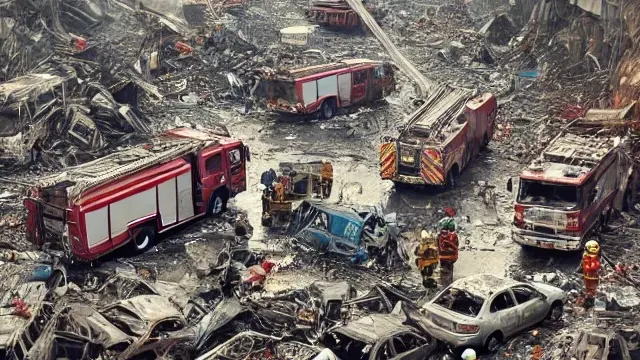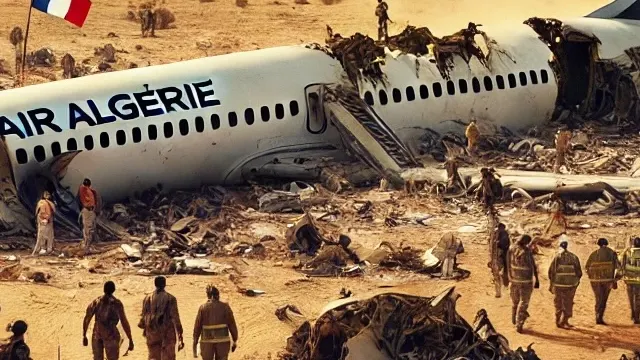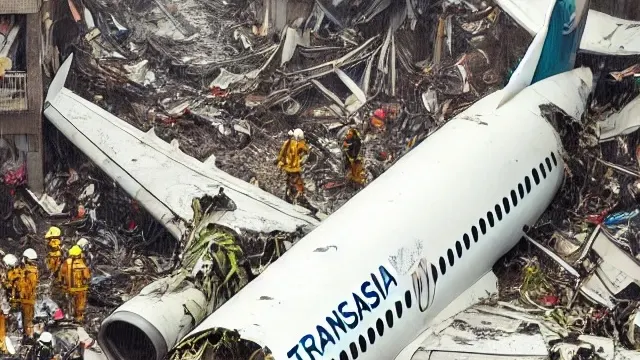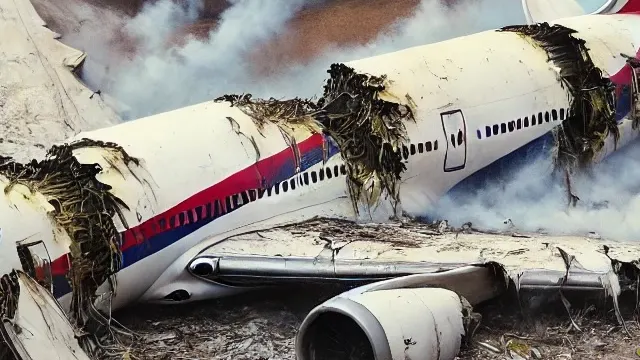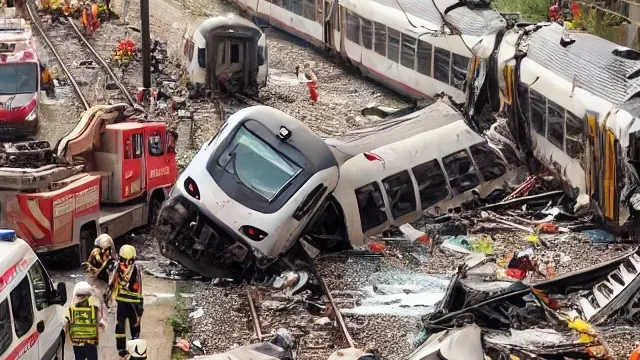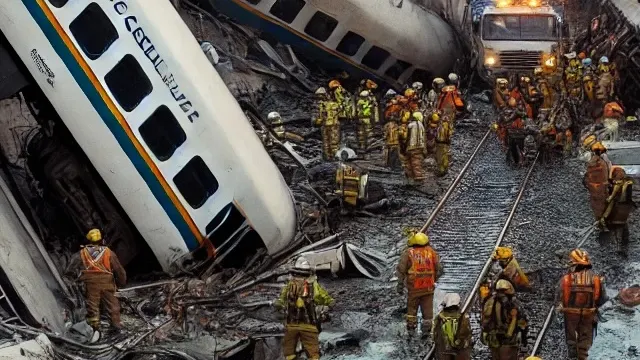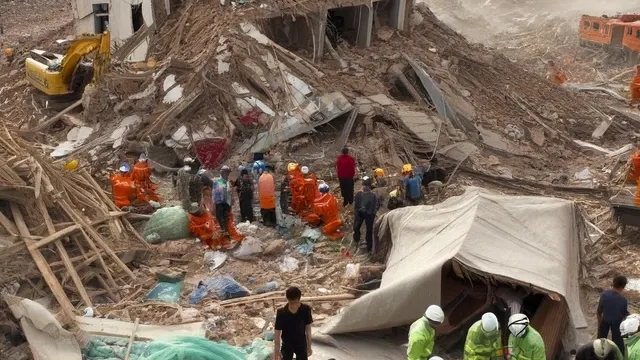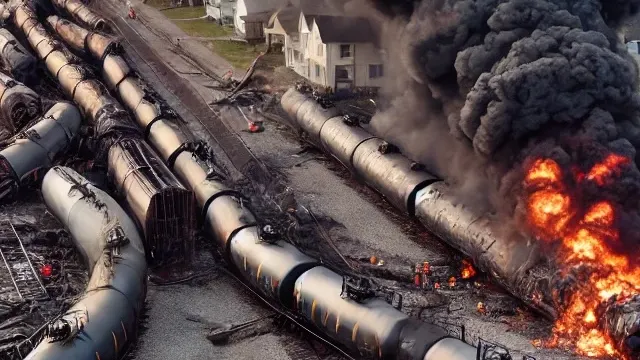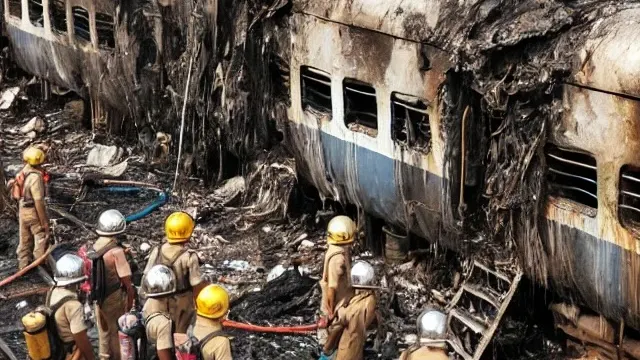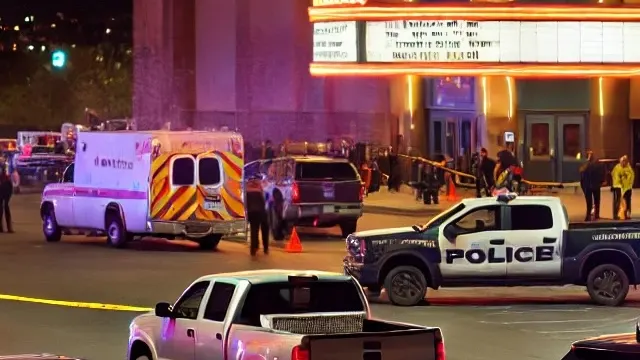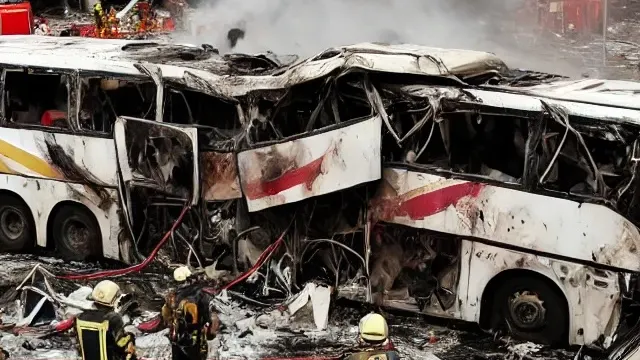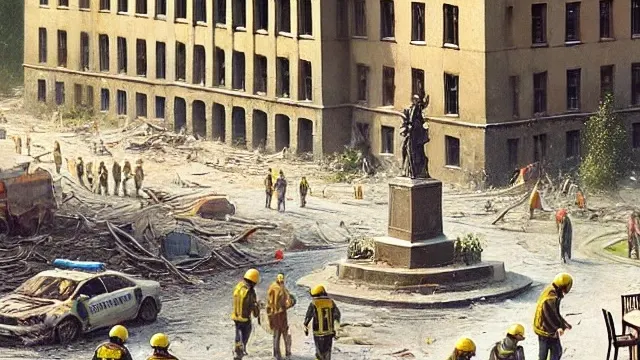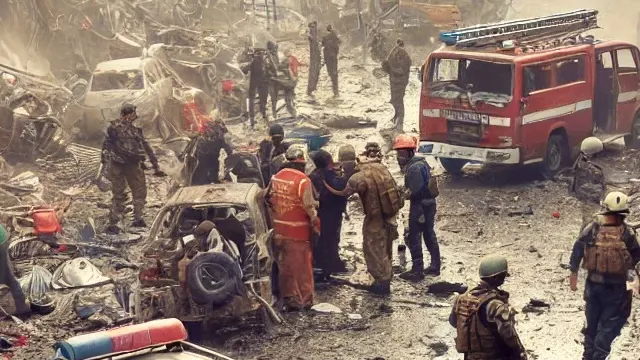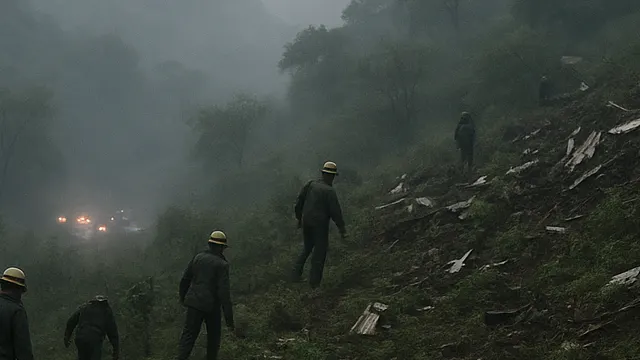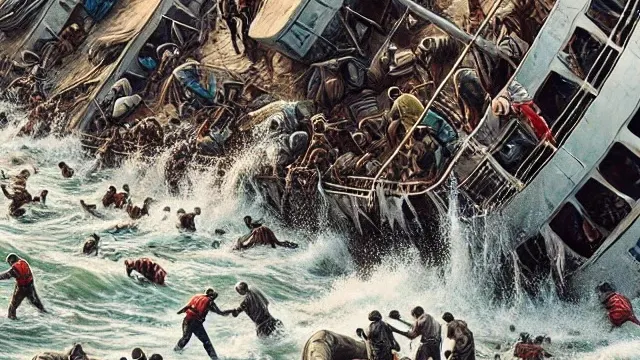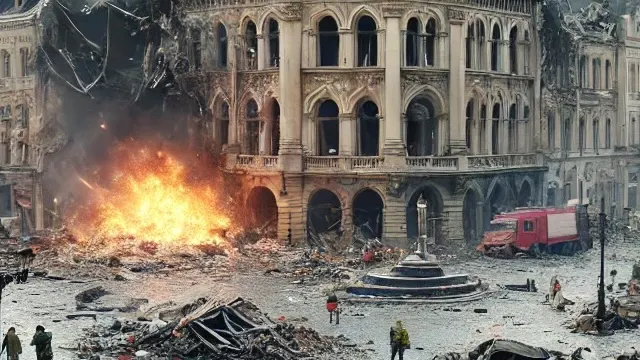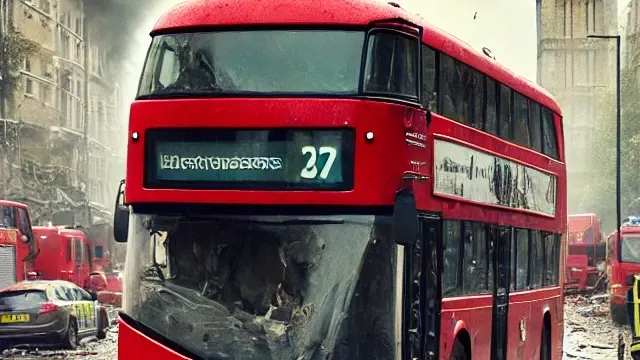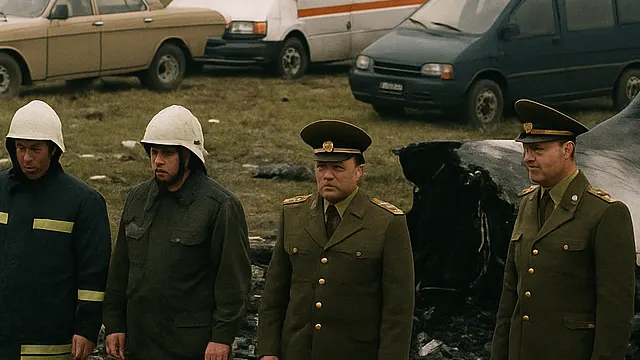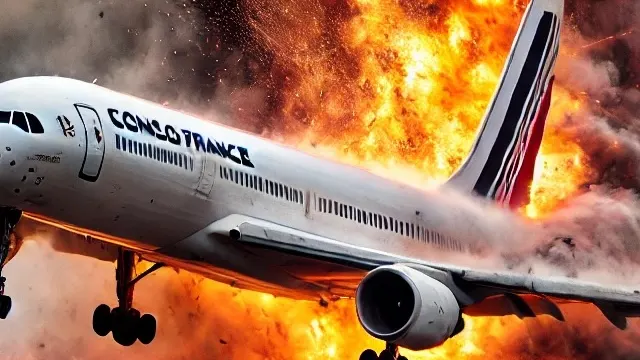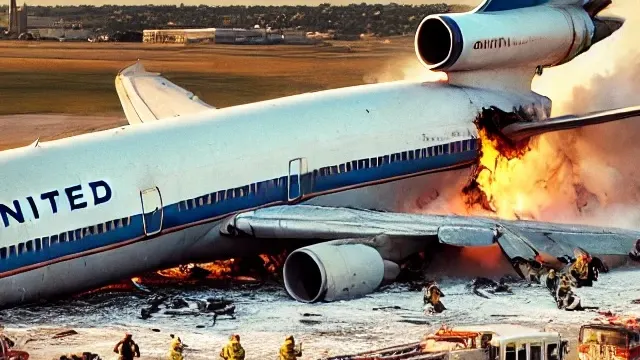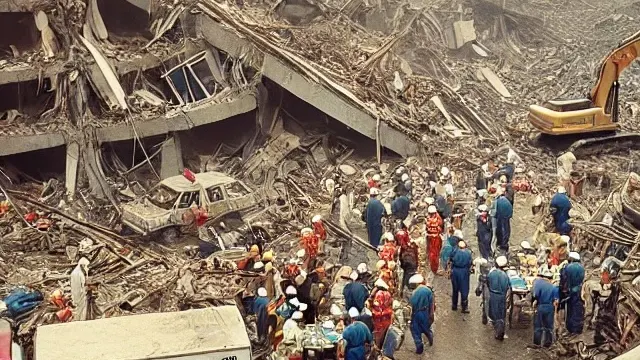July
2024 Lumut Mid-air Collision
In a rare and catastrophic aviation incident, a mid-air collision occurred between a commercial airliner and a private jet over Lumut, Malaysia, leaving no survivors and prompting sweeping changes in aviation safety protocols. Read more
The 2019 Altamira Prison Riot
On July 29, 2019, a brutal riot erupted at the Altamira Regional Recovery Center in Pará, Brazil. The violence, driven by rival gangs, led to the deaths of 62 inmates and highlighted the severe issues plaguing the Brazilian prison system. This incident is one of the deadliest in the country’s recent history, prompting urgent calls for prison reform and better security measures. Read more
The Yuen Long Attack
On July 21, 2019, Hong Kong witnessed a shocking and violent incident known as the Yuen Long Attack. Men dressed in white shirts, armed with sticks and metal rods, assaulted commuters, journalists, and bystanders at the Yuen Long MTR station. This attack, occurring amid the widespread protests against the proposed extradition bill, revealed significant failures in police response and intensified the already high tensions in the city. Read more
Stay in the Loop!
Become a Calamity Insider and get exclusive Calamity Calendar updates delivered straight to your inbox.
Thanks! You're now subscribed.
Kyoto Animation Arson Attack
On July 18, 2019, Kyoto Animation Studio in Fushimi-ku, Kyoto, Japan, was the scene of a devastating arson attack that claimed 36 lives. The attack, perpetrated by Shinji Aoba, left the anime community in mourning and raised important questions about mental health and building safety.
Read moreThe As-Suwayda Attacks
On July 25, 2018, the peaceful region of As-Suwayda, Syria, was shattered by a series of coordinated attacks carried out by ISIS. This tragic day saw suicide bombings, armed assaults, and the loss of hundreds of lives, marking one of the deadliest assaults in the area during the Syrian Civil War.
Read moreThe 2018 Attica Wildfires
On July 23, 2018, a wildfire broke out in East Attica, Greece, leading to one of the deadliest natural disasters in the country’s history. The fire, exacerbated by a heatwave and strong winds, spread rapidly through the region, devastating the coastal village of Mati. The tragic event resulted in significant loss of life, extensive property damage, and prompted a nationwide reassessment of wildfire management and emergency response strategies.
Read moreThe 2016 Munich Mall Shooting
On July 22, 2016, the bustling city of Munich, Germany, was thrust into chaos when an 18-year-old, David Ali Sonboly, unleashed a deadly shooting spree at the Olympia shopping mall. The attack left nine people dead and 36 others injured before the shooter turned the gun on himself. This meticulously planned massacre highlighted serious issues related to gun control, mental health, and the impact of bullying.
Read moreThe Sagamihara Stabbings
On the night of July 25, 2016, the serene atmosphere of Tsukui Yamayuri En, a care facility for people with intellectual disabilities in Sagamihara, Japan, was shattered by a brutal attack carried out by a former employee, Satoshi Uematsu. This horrific event resulted in the deaths of 19 residents and left 26 others injured, marking it as one of the most tragic mass killings in Japan’s post-war history.
Read moreThe Baton Rouge Police Shooting
On July 17, 2016, Baton Rouge, Louisiana, was shaken by a deadly ambush that left three police officers dead and three others wounded. The attack, carried out by Gavin Eugene Long, a former Marine, came in the wake of heightened tensions following the police-involved shooting of Alton Sterling. This incident further strained the already volatile relationship between the community and law enforcement, prompting changes in security protocols and reigniting the national conversation on police-community relations.
Read moreThe Nice Truck Attack
On July 14, 2016, a day meant for celebration turned into a nightmare when a terrorist attack struck the heart of Nice, France. Mohamed Lahouaiej-Bouhlel drove a 19-tonne cargo truck into the crowds along the Promenade des Anglais, killing 86 people and injuring 458 others. This tragedy, amidst France’s ongoing state of emergency, left an indelible mark on the nation and the world, underscoring the persistent threat of terrorism.
Read moreThe 2015 Suruç Bombing
On July 20, 2015, the town of Suruç in Şanlıurfa Province, Turkey, near the Syrian border, was rocked by a devastating suicide bombing. The attack targeted a group of young activists gathered to support reconstruction efforts in the war-torn Syrian town of Kobani. The bombing, linked to ISIS, resulted in the deaths of 34 people and left over 100 injured, marking a significant escalation in regional tensions and violence.
Read moreThe Kaohsiung Gas Explosions
On July 31, 2014, the bustling city of Kaohsiung in southern Taiwan was rocked by a series of catastrophic gas explosions. Residents in the Cianjhen and Lingya districts had reported a strong smell of gas earlier in the evening, but the source was not promptly identified. As emergency personnel responded to the calls, a massive explosion tore through the night, followed by multiple blasts that wreaked havoc on the city’s infrastructure. The disaster resulted in 32 deaths, over 300 injuries, and extensive property damage. The aftermath saw an urgent response from emergency services, a thorough investigation into the cause, and significant policy changes to prevent future incidents.
Read moreThe Crash of Air Algérie Flight 5017
On July 24, 2014, Air Algérie Flight 5017, a routine passenger flight from Burkina Faso to Algeria, tragically crashed near Gossi, Mali, claiming the lives of all 116 people on board. This heartbreaking event, driven by severe weather and crew errors, led to significant international investigations and substantial changes in aviation safety protocols.
Read moreThe Crash of TransAsia Airways Flight 222
TransAsia Airways Flight 222 was a routine domestic flight that turned catastrophic on July 23, 2014. Amidst Typhoon Matmo, the aircraft crashed near Magong Airport on Taiwan’s Penghu Island, resulting in 48 fatalities and sparking discussions on aviation safety and pilot training.
Read moreThe Death of Eric Garner
On July 17, 2014, Eric Garner’s tragic death in Staten Island, New York, became a pivotal moment in the fight against police brutality and systemic racism. Garner, a 43-year-old African American man with health issues, died after being placed in a prohibited chokehold by NYPD Officer Daniel Pantaleo. Garner’s repeated pleas of “I can’t breathe” echoed through the nation, igniting widespread protests and fueling the Black Lives Matter movement. Despite legal setbacks, Garner’s death led to significant policy changes and ongoing advocacy for police reform and accountability.
Read moreMalaysia Airlines Flight 17
On July 17, 2014, Malaysia Airlines Flight 17 (MH17) was shot down over Eastern Ukraine, claiming the lives of 298 passengers and crew. The incident occurred against the backdrop of an escalating conflict between pro-Russian separatists and Ukrainian forces. This article delves into the details of the crash, the aftermath, and the ongoing quest for justice.
Read moreThe 2014 Moscow Metro Derailment
On July 15, 2014, the Moscow Metro, renowned for its efficiency and reliability, faced a catastrophic derailment between Slavyansky Bulvar and Park Pobedy stations. The incident resulted in 24 deaths and over 150 injuries, marking one of the deadliest days in the history of the Moscow Metro. This tragedy underscored the critical importance of rigorous safety measures and diligent maintenance in urban mass transit systems.
Read moreThe Lausanne Train Collision
On the evening of July 29, 2013, a tragic train collision occurred at Granges-près-Marnand station near Lausanne, Switzerland. Two regional trains collided head-on, resulting in one fatality and 35 injuries. The incident, attributed to human error, sparked significant discussions about rail safety and led to crucial improvements in train control systems.
Read moreThe Santiago de Compostela Train Derailment
On July 24, 2013, the tranquil evening near Santiago de Compostela, Galicia, Spain, was shattered by one of the deadliest train accidents in Spanish history. The high-speed Alvia 730 train, en route from Madrid to Ferrol, derailed at a sharp curve, resulting in the tragic loss of 79 lives and injuries to 140 others. The incident not only highlighted critical lapses in safety protocols but also prompted significant changes in railway safety measures.
Read moreThe 2013 Dingxi Earthquakes
On July 22, 2013, the Dingxi region in Gansu Province, China, experienced a devastating earthquake, followed by a series of aftershocks. The disaster resulted in significant loss of life, injuries, and widespread destruction of property and infrastructure. The immediate and long-term response included extensive rescue efforts and a comprehensive rebuilding program aimed at enhancing earthquake preparedness and resilience.
Read moreThe Lac-Mégantic Rail Disaster
On July 6, 2013, a runaway train carrying crude oil derailed in Lac-Mégantic, Quebec, causing a catastrophic explosion that claimed 47 lives and destroyed a significant portion of the town. This disaster, one of the worst in Canadian history, exposed serious flaws in rail safety practices and led to substantial regulatory changes aimed at preventing similar tragedies.
Read moreThe 2013 Aceh Earthquake
Discover the impactful events of the Aceh Earthquake in 2013, its aftermath, and the resilience shown by the people of Sumatra.
Read moreThe Nellore Train Fire
In the early hours of July 30, 2012, a tragic fire broke out on the Tamil Nadu Express train near Nellore, Andhra Pradesh, India. The incident occurred when most passengers were asleep, resulting in significant loss of life and injuries. The fire, later attributed to an electrical short circuit, led to the deaths of 32 passengers and injuries to 27 others. The event highlighted critical safety issues in the Indian railway system, prompting a series of reforms aimed at preventing such disasters in the future.
Read moreThe 2012 Aurora Shooting
On July 20, 2012, the midnight premiere of “The Dark Knight Rises” at the Century 16 movie theater in Aurora, Colorado, turned into a nightmare when James Eagan Holmes unleashed a meticulously planned attack. The shooting resulted in 12 fatalities and 70 injuries, leaving a lasting impact on the community and sparking nationwide debates on gun control and mental health care.
Read moreThe Burgas Bus Bombing
The Burgas Bus Bombing was a devastating terrorist attack on Israeli tourists in Bulgaria on July 18, 2012. It resulted in the deaths of seven individuals, including five Israeli tourists, the Bulgarian bus driver, and the bomber. The attack, attributed to Hezbollah operatives, led to significant changes in international security measures.
Read moreSinking of the river cruise ship Bulgaria
On July 11, 2011, the Russian river cruise ship Bulgaria foundered on the Kuybyshev Reservoir near Syzran on the Volga River after sudden heavy winds and waves drove water into lower-deck openings. Of about 201 people aboard, 122 died and 79 survived. The disaster exposed weaknesses in the regulation and upkeep of aging inland passenger vessels and prompted criminal probes and tightened inspections.
Read moreThe 2011 Norway Attacks
On July 22, 2011, Norway faced one of the darkest days in its history when Anders Behring Breivik, a far-right extremist, carried out devastating attacks in Oslo and on Utøya Island. The coordinated acts of terror resulted in the deaths of 77 people, with countless others injured. The attacks left a lasting impact on Norway, prompting significant changes in the nation’s approach to security and counter-terrorism.
Read moreThe 2011 Mumbai Bombings
On July 13, 2011, Mumbai experienced a devastating series of bombings that disrupted the bustling city, claimed lives, and left many injured. The attacks exposed vulnerabilities in urban security and prompted significant changes in India’s counter-terrorism strategies.
Read more2010 Kampala bombings
On July 11, 2010, two suicide explosions struck crowded World Cup viewing sites in Kampala — the Kyadondo Rugby Club and the Kabalagala/Ethiopian Village area — killing 74 people and injuring scores more. Somalia-based al-Shabaab said the attacks were retaliation for Uganda’s deployment of troops to Somalia. The bombings exposed regional vulnerabilities, prompted arrests and prosecutions, and changed how Uganda policed mass gatherings.
Read moreThe Airblue Flight 202 Crash
On July 28, 2010, Airblue Flight 202 crashed into the Margalla Hills near Islamabad, Pakistan, killing all 152 people on board. The tragedy became the deadliest air disaster in Pakistani history, drawing attention to lapses in cockpit communication and flight procedures.
Read more2010 Kasai River Ferry Capsizing
On July 29, 2010, a ferry carrying approximately 200 passengers and a large quantity of goods, including cassava flour, capsized on the Kasai River in Bandundu Province, Democratic Republic of the Congo. The disaster resulted in at least 80 confirmed deaths, with many more missing and presumed drowned. The incident highlighted the severe issues of overloading, lack of safety equipment, and poor regulatory oversight in the DRC’s transportation sector. Despite subsequent efforts to improve safety standards, many ferries continue to operate under hazardous conditions.
Read moreThe Urumqi Riots of July 2009
The Urumqi Riots of July 2009 were a significant episode of ethnic violence in Xinjiang, China. Sparked by long-standing grievances and a specific triggering incident, these riots resulted in substantial loss of life, property damage, and a harsh government crackdown. The aftermath continues to affect the region, drawing international scrutiny and condemnation.
Read moreMinsk Independence Day Bombing
On July 4, 2008, during the national celebrations of Belarus’ Independence Day, a bomb exploded in Minsk’s Victory Square, injuring over 50 people. This tragic event, occurring during a concert attended by President Alexander Lukashenko, left a deep impact on the nation and remains an unresolved case. This article delves into the details of that fateful night, the aftermath, and the lasting legacy on Belarusian society.
Read more2006 Mumbai train bombings
On the evening of July 11, 2006, during the city's evening rush, a string of timed explosive devices detonated on suburban trains running along Mumbai’s Western Line. Seven blasts in quick succession tore through crowded carriages, killing 209 people and injuring 714. The attacks shattered a routine commute, tested the city's emergency response, spawned long-running criminal trials, and pushed changes in how India protects mass transit systems.
Read morePakistan International Airlines Flight 688 crash
On July 10, 2006, Pakistan International Airlines Flight 688, a Fokker F27 on a scheduled domestic flight from Islamabad to Multan, crashed shortly after takeoff from Benazir Bhutto International Airport. All 45 people on board were killed; investigators later pointed to an in‑service technical failure compounded by shortcomings in maintenance and oversight.
Read moreThe Maharashtra Floods of 2005
On July 26, 2005, Mumbai, India’s bustling financial capital, was brought to its knees by one of the most catastrophic floods in the nation’s history. Unprecedented monsoon rains overwhelmed the city’s infrastructure, leading to widespread devastation, significant loss of life, and a severe economic blow. This narrative chronicles the events of that fateful day, the ensuing chaos, and the long road to recovery.
Read moreThe 21 July 2005 London Bombings
On 21 July 2005, exactly two weeks after the devastating 7/7 London bombings, another attempt to terrorize London’s public transport system was made. This event, known as the 21/7 bombings, saw four homemade explosive devices fail to detonate properly, resulting in no fatalities and only one minor injury. The quick response from authorities led to the arrest and conviction of the perpetrators, who were later sentenced to life imprisonment.
Read moreThe 7/7 London Bombings
On July 7, 2005, London experienced an unprecedented tragedy when a series of coordinated suicide bomb attacks targeted the city’s public transport system during the morning rush hour. Known as the 7/7 London Bombings, the event resulted in 52 civilian deaths and over 700 injuries, marking it as one of the deadliest terror attacks in British history. This article delves into the meticulous planning, execution, and aftermath of the attacks, shedding light on the impact it had on London and the world.
Read moreSknyliv Air Show Disaster
On July 27, 2002, a Ukrainian Air Force jet lost control and crashed into a crowd during an air show at Sknyliv Airfield near Lviv, Ukraine, resulting in 77 deaths and over 500 injuries in the deadliest air show accident in history.
Read moreThe 2002 Überlingen Mid-Air Collision
On July 1, 2002, a mid-air collision over southern Germany claimed 71 lives, highlighting critical flaws in air traffic management and procedural oversights.
Read moreThe Concorde Air France Flight 4590 Crash
On July 25, 2000, Concorde Air France Flight 4590, en route from Paris to New York, tragically crashed shortly after takeoff from Charles de Gaulle Airport. The crash resulted in the deaths of all 109 people on board and four individuals on the ground. This incident marked a devastating end to an era of supersonic luxury air travel and led to significant changes in aviation safety protocols.
Read moreThe Final Flight of John F. Kennedy Jr.
On July 16, 1999, John F. Kennedy Jr., his wife Carolyn Bessette-Kennedy, and her sister Lauren Bessette boarded a small plane for what was meant to be a routine flight to Martha’s Vineyard. Tragically, the plane crashed into the Atlantic Ocean, claiming all three lives. This story delves into the events leading up to the crash, the search and recovery efforts, and the aftermath of this heart-wrenching accident.
Read moreThe Atlanta 1996 Centennial Olympic Park Bombing
On July 27, 1996, during the joyous atmosphere of the Summer Olympics in Atlanta, Georgia, a bombing at Centennial Olympic Park shattered the sense of celebration. The explosion, orchestrated by Eric Robert Rudolph, resulted in two deaths and over a hundred injuries. This tragic event not only left a lasting mark on those present but also led to significant changes in security protocols for public events worldwide.
Read moreSrebrenica massacre
In July 1995 the UN-declared "safe area" of Srebrenica in eastern Bosnia fell to Bosnian Serb forces. Over the days that followed, Bosniak men and boys were separated from the women and driven into the surrounding countryside, where systematic mass executions and clandestine burials claimed the lives of approximately 8,000 people. International courts later judged the killings to be genocide; forensic teams spent years exhuming and identifying remains while survivors, families and nations sought accountability and memory.
Read more1993 Finisterre earthquakes
On July 16, 1993, a strong earthquake beneath the Finisterre Range in Morobe Province, northeastern Papua New Guinea, set steep slopes loose, triggering widespread landslides that buried villages, cut roads, and left isolated communities to scramble for survivors and supplies. The sequence of shocks and aftershocks over the following days exposed how deadly shaking can be when it meets fragile slopes and thin infrastructure.
Read moreNigeria Airways Flight 2120 (Douglas DC‑8 crash)
On July 11, 1991, Nigeria Airways Flight 2120, a McDonnell Douglas DC‑8 departing King Abdulaziz International Airport in Jeddah, suffered an inflight fire that began in the left main wheel‑well shortly after takeoff. Smoke and structural damage from the wheel‑area fire crippled systems and filled the cabin; the crew were unable to regain control and the aircraft crashed into the desert, killing all 261 people on board. The investigation traced the catastrophe to overheated or damaged tyre and wheel assemblies and to shortcomings in ground servicing and maintenance practices, prompting industry-wide attention to wheel/tyre maintenance and inflight fire procedures.
Read moreThe 1989 United Airlines Flight 232 Crash
On July 19, 1989, United Airlines Flight 232 faced an unimaginable catastrophe when a mid-air engine failure resulted in the loss of all hydraulic systems, rendering the aircraft nearly uncontrollable. Despite heroic efforts by the flight crew, the DC-10 crash-landed at Sioux Gateway Airport in Sioux City, Iowa. The tragedy claimed 112 lives and forever altered aviation safety protocols.
Read morePeruman railway accident
On the night of July 8, 1988, the Island Express plunged from a low-level bridge over Ashtamudi Lake at Peruman, near Kollam in Kerala. Multiple coaches derailed and fell into the shallow water; 105 people were killed and roughly 200 injured. Local fishermen, villagers, police and railway staff mounted a frantic rescue and recovery that unfolded through the night and into the next day.
Read moreAeroflot Flight 4225 crash (Tupolev Tu‑154B‑2 at Alma‑Ata)
On July 8, 1980, Aeroflot Flight 4225, a Tupolev Tu‑154B‑2, climbed away from Alma‑Ata Airport into convective summer weather and, seconds later, encountered a violent downdraft and wind shear. The airliner lost airspeed and lift, struck the ground a short distance from the runway, broke apart and burned. All 166 people on board were killed. The accident added to growing evidence of the danger posed by microbursts and helped accelerate changes in training, forecasting, and wind‑shear detection worldwide.
Read moreThe Tangshan Earthquake
On July 28, 1976, the city of Tangshan in China’s Hebei Province experienced one of the deadliest earthquakes in recorded history. With a magnitude of at least 7.5, the quake leveled the industrial city, resulting in catastrophic loss of life and extensive destruction. This story unravels the harrowing events leading up to the quake, the immediate aftermath, and the long-term impact on China’s disaster management and urban planning.
Read moreVarig Flight 820 accident
On July 11, 1973, Varig Flight 820, a Boeing 707 en route from Rio de Janeiro to Paris–Orly, made a forced landing in a field short of Orly Airport after smoke and fire began in an aft lavatory. Of 134 people aboard, 123 died—most from inhalation of rapidly toxic smoke—while 11 survived. The accident and the BEA investigation that followed helped push aviation industry changes: lavatory smoke detection, redesigned waste receptacles, improved interior materials, and the tightening of in‑flight smoking rules.
Read moreThe Tragic Crash of Dan-Air Flight 1903
A comprehensive look at the events leading up to and following the tragic crash of Dan-Air Flight 1903 in the Montseny Mountains on July 3, 1970.
Read moreCanadian Pacific Air Lines Flight 21 crash
On July 8, 1965, Canadian Pacific Air Lines Flight 21 broke apart in flight over central British Columbia and crashed near 100 Mile House. Forensic examination of the wreckage led investigators to conclude the airframe had been destroyed by an internal explosive blast — a probable act of sabotage — but no person was ever identified or prosecuted. The disaster killed everyone on board and helped push the aviation industry toward tighter baggage and passenger controls.
Read moreLituya Bay Megatsunami
On July 9, 1958, a colossal wave transformed Alaska's Lituya Bay following a massive earthquake, leaving a mark as one of history's most formidable natural events.
Read morePalestinian expulsion from Lydda and Ramle
In July 1948, during Operation Dani, Israeli forces captured the central Palestinian towns of Lydda (al-Lydd) and Ramle (ar-Ramla). Over a matter of days — roughly July 11–12, 1948 — fighting, mass detentions, and orders to leave produced one of the largest single displacements of the 1947–49 war: tens of thousands of Palestinian civilians forced onto the road under summer heat, many never to return.
Read moreThe Port Chicago Disaster
On July 17, 1944, the Port Chicago Naval Magazine in California became the site of a catastrophic explosion that claimed 320 lives, most of them African American sailors. The disaster exposed the dangerous working conditions and racial inequalities within the U.S. military, ultimately influencing the desegregation of the armed forces and marking a significant moment in the civil rights movement.
Read moreMichniów massacre (pacification of Michniów)
On July 12–13, 1943, German security forces carried out a punitive pacification in the small Polish village of Michniów, murdering 204 civilians, burning homes and barns, and leaving survivors homeless. The action became a lasting symbol of Nazi collective punishment of rural communities and is commemorated at a national memorial on the site.
Read moreBattle of Prokhorovka
On July 12, 1943, near the village of Prokhorovka southeast of Kursk, Soviet 5th Guards Tank Army and elements of the German II SS Panzer Corps collided in a brutal, short‑range armored clash. The fighting unfolded across mined wheat fields and sunken embankments; it did not produce a decisive breakthrough for either side but helped blunt the German southern offensive during Operation Citadel and marked a turning point in the Eastern Front campaign.
Read moreVolhynian Bloody Sunday (Krwawa Niedziela)
On July 11, 1943, coordinated attacks swept across dozens of Polish villages in Volhynia, then under German occupation. Carried out by units associated with the Ukrainian Insurgent Army and local nationalist structures, the assaults marked a turning point in a campaign of mass violence that left tens of thousands dead, destroyed communities, and shaped Polish‑Ukrainian memory for generations.
Read moreEichenfeld massacre
During the summer and early autumn of 1941, in the small borderland village known to Germans as Eichenfeld, members of German security detachments and allied auxiliaries carried out a mass killing of the village’s Jewish population. The massacre followed the rapid advance of Operation Barbarossa and fits the pattern of roundups, shootings at prepared sites, and looting seen across the occupied southern Soviet borderlands. Exact dates, victim counts, and the full list of perpetrators remain fragmentary in surviving sources; the violence left the Jewish community of Eichenfeld erased and its memory fragile.
Read moreJedwabne pogrom (10 July 1941)
On July 10, 1941, in the small northeastern Polish town of Jedwabne, a large group of Jewish residents were rounded up, brutally murdered and many burned alive in a wooden building. The killings occurred in the chaotic weeks after Nazi Germany’s invasion of Soviet-held Poland; historical investigations since 2001 have shown that local non‑Jewish residents participated in the massacre while German forces were present and created the conditions for violence. Estimates of the dead range from several hundred (the conservative figure settled on by official Polish investigators is in the mid‑300s) to higher totals reported in earlier accounts; many questions about exact numbers and command remain.
Read moreBelfast Bloody Sunday (10 July 1921)
On July 10, 1921, Belfast convulsed in some of the worst sectarian violence of the partition era. Over the course of a day and into the nights that followed, gunmen and mobs attacked streets in mixed working‑class districts — the Markets, Short Strand, New Lodge and adjacent shipyard neighborhoods — leaving scores dead or wounded, thousands displaced, and whole terraces blackened by fire. The fighting came at the end of a season of growing hostility tied to partition, job scarcity and the rise of irregular security forces; its effects hardened residential segregation and deepened mistrust of state policing for decades to come.
Read moreJapanese battleship Kawachi — loss by internal magazine explosion and sinking
On July 11, 1918, while anchored in Tokuyama Bay, the Imperial Japanese Navy dreadnought Kawachi suffered a catastrophic internal magazine explosion that broke her back and sank her in shallow water. The blast killed 621 crewmen, prompted wide‑ranging inquiries into magazine safety and the handling of Shimose explosives, and led the navy to revise storage, firefighting and magazine protections across the fleet.
Read moreBisbee Deportation
On July 12, 1917, in the copper town of Bisbee, Arizona, a thousand-plus miners and suspected labor organizers—many recent immigrants and Mexican nationals—were rounded up by deputized posses, loaded into boxcars and cattle cars, and carried into the New Mexico desert, where they were dumped without food or shelter. The mass expulsion, driven by company power, wartime fears, and local vigilante organization, became a landmark episode in American labor and civil‑liberties history.
Read more
